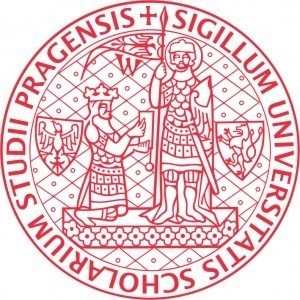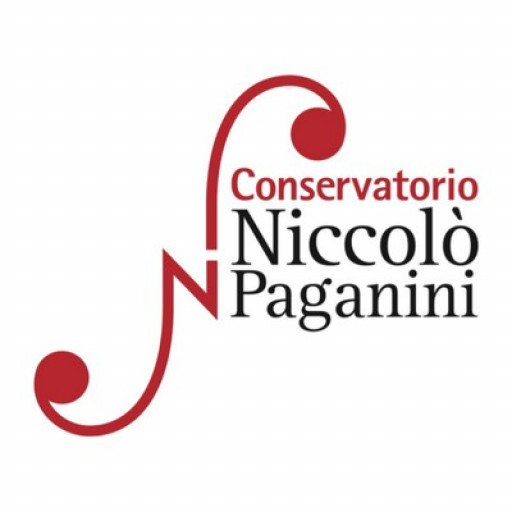Photos of university / #lundsuniversitet
literature – culture – media is a comprehensive undergraduate programme offered by Lund University that immerses students in the analysis and understanding of how literature, culture, and media intersect and influence each other in contemporary and historical contexts. This interdisciplinary degree is designed to provide students with a broad theoretical and analytical foundation, alongside practical skills necessary for careers in media, cultural institutions, publishing, education, and research. Throughout the programme, students explore a wide range of topics including literary theory, cultural studies, media studies, communication, and critical analysis, enabling them to critically evaluate texts, media content, and cultural phenomena from multiple perspectives. The curriculum combines lectures, seminars, workshops, and project work, encouraging active participation and independent inquiry. Students are also given opportunities to develop language skills, enhance their understanding of different cultural contexts, and engage in comparative analyses across different media and literary forms. The programme emphasises the importance of interdisciplinary thinking and offers courses that highlight the relationship between texts, media, and societal change. Additionally, students may participate in internships, study abroad exchanges, and research projects, which prepare them for diverse professional pathways or advanced studies. Whether aiming for a career in journalism, media production, cultural management, education, or academia, graduates of this programme will possess a well-rounded skill set that combines analytical acumen with creative and communicative abilities. With its interdisciplinary approach, modern teaching methods, and a focus on critical engagement with contemporary issues, the literature – culture – media programme at Lund University offers an enriching educational experience that prepares students to understand and influence the multifaceted world of culture and media in the 21st century.
The Master's Programme in Literature – Culture – Media at Lund University offers students a comprehensive and interdisciplinary education in the fields of literature, cultural studies, and media. The programme is designed to provide students with a deep understanding of how literary texts, cultural phenomena, and media contexts interact and influence each other in contemporary society. Throughout the programme, students will explore a wide range of texts and media forms, from classical literature to modern digital media, gaining critical insights into cultural processes and communication strategies across different periods and regions.
The first year of the programme emphasizes foundational knowledge, where students analyze literary works from various genres and historical periods, paying close attention to language, style, and thematic content. In addition, students will examine cultural theories and media studies to develop an understanding of cultural identity, societal changes, and the impact of media technologies. The coursework encourages critical thinking and analytical skills, enabling students to interpret texts and media within broader cultural and social contexts.
In the second year, students have the opportunity to specialize in areas aligned with their interests, such as Scandinavian literature, modern media, or cultural theory. They are expected to undertake an independent research project or thesis, which demonstrates their ability to apply theoretical frameworks to original research questions. The programme also offers courses on digital humanities, intercultural communication, and media design, broadening students’ skill sets for future careers in academia, publishing, media industries, or cultural management.
Lectures, seminars, workshops, and project work form the core teaching methods, fostering a collaborative learning environment. The international setting of Lund University enriches the educational experience, allowing students to engage with diverse perspectives and networks. The programme prepares graduates for professional roles that require critical analysis, cultural awareness, and media literacy, as well as further academic pursuits. Upon completion, students will possess a nuanced understanding of literature, culture, and media, equipping them to navigate and influence the rapidly evolving cultural landscape.
The programme in Literature — Culture — Media at Lund University requires applicants to hold a recognised Bachelor's degree or equivalent with a strong focus on studies related to literature, culture, and media. Prospective students should demonstrate proficiency in English, typically equivalent to the Swedish upper secondary school course English B/6 or an internationally recognized test such as IELTS with a score of at least 6.5 overall, or TOEFL iBT with a minimum score of 90. The programme emphasizes the ability to critically analyze texts, cultural phenomena, and media practices, and applicants are expected to provide a well-crafted personal statement outlining their interest and relevant background in these fields.
Academic prerequisites include courses in literature, cultural studies, or media studies within the undergraduate degree. Relevant work experience or internships in related sectors may strengthen an application but are not mandatory. Admission decisions are based on academic credentials, quality of the personal statement, and relevant experience, if provided.
In addition to general entrance requirements, applicants may be required to submit sample writings or a portfolio demonstrating their analytical skills and familiarity with the programme's thematic areas. The programme encourages applicants from diverse educational backgrounds, promoting interdisciplinary perspectives in the study of literature, culture, and media.
Once admitted, students are expected to participate actively in seminars, workshops, and independent research projects, engaging critically with established scholarship and contemporary issues in the field. They should be prepared to undertake extensive reading and writing, and to develop their own research interests under academic supervision. The curriculum includes core courses in literary analysis, cultural theory, and media studies, complemented by optional courses allowing for specialization.
International students are advised to review the specific language requirements and application deadlines on the university's official admissions webpage. The programme aims to cultivate analytical, scholarly, and communicative competencies, preparing students for careers in academia, journalism, cultural management, or media industries. Completion of the programme requires passing examinations, active participation, and the submission of a final thesis demonstrating comprehensive understanding and original analysis of a chosen research topic within the field of literature, culture, or media studies.
The financing of the Literature — Culture — Media, Scandinavian Studies program at Lund University is primarily supported through a combination of Swedish government funding, university resources, and various scholarship opportunities. As a Swedish public university, Lund University receives significant funding from the Swedish Higher Education Authority (UHR) and government agencies dedicated to promoting higher education and research. These funds are allocated to ensure the quality and accessibility of academic programs, including language, literature, and media studies.
Tuition fees for non-EU/EEA students are established by Lund University in accordance with Swedish regulations and are intended to cover administrative costs, educational resources, faculty salaries, and research activities related to the program. For students from the EU/EEA, the program is typically tuition-free, with access to student aid programs through the Swedish State Educational Support Board (CSN). This support enables students to finance their studies through grants and loans, making higher education accessible to Swedish and European students.
In addition to government funding, Lund University offers a range of scholarships and funding options for international students through university-specific scholarships, national scholarship programs, and external foundations. These scholarships often aim to promote internationalization and diversity within the student body. Examples include the Lund University Global Scholarship and other merit-based awards that can significantly alleviate financial burdens.
Students also have access to part-time employment opportunities within Lund University, including research assistantships, teaching assistantships, and administrative roles, which can contribute to their living expenses and reduce financial strain during their studies. The university's campus provides facilities, study resources, and cultural activities, many of which are included in the overall fee or support package.
Overall, the investment in the Literature — Culture — Media, Scandinavian Studies program is sustained through a mix of public funding, scholarships, student loans, and part-time employment opportunities, ensuring that students can pursue their academic goals with adequate financial support. The university's commitment to accessible education, combined with numerous financial aid options, makes studying at Lund University feasible and attractive for students from diverse backgrounds.
The Bachelor’s degree programme in Literature — Culture — Media at Lund University offers students an in-depth understanding of contemporary and historical literary, cultural, and media phenomena. This programme is designed to explore the complex relationships between literature, culture, and various forms of media within a broad societal context. Students engage with a diverse range of texts and media, including literary works, visual arts, digital media, and contemporary cultural expressions. The curriculum emphasizes critical thinking, cultural analysis, and historical awareness, providing students with the analytical skills necessary to understand and interpret complex cultural and media landscapes.
Throughout the programme, students have the opportunity to study various genres and periods, gaining insights into how literature and media influence societal values, identity, and power structures. Courses often include cultural theory, media studies, literary analysis, and interdisciplinary approaches that combine history, philosophy, and sociology. This comprehensive approach prepares students for careers in media, journalism, publishing, cultural management, academia, and other fields requiring strong analytical and communicative abilities.
Lund University’s vibrant academic environment fosters collaboration and active learning, with seminars, workshops, and project work designed to deepen students’ engagement with the material. The programme also emphasizes the importance of cross-cultural understanding, especially relevant given the globalized nature of contemporary society. Students may have opportunities for mobility and exchanges within the EU and beyond, enriching their academic experience and cultural perspectives.
The programme typically culminates in a degree that qualifies graduates for further studies at the postgraduate level or entry into various professional sectors. It combines theoretical knowledge with practical skills, such as critical reading, scholarly writing, and media analysis, which are valuable in many professional contexts. With a strong emphasis on contemporary issues and digital media, the programme prepares students to navigate and shape the evolving landscape of literature, culture, and media in a globalized world.





